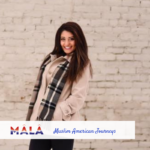When her mother fell ill, Farah become increasingly aware of stereotypes and prejudices as her family sought medical care. Her story describes how this experience brought strength, confidence, and growth.
As a Middle Eastern, Muslim individual growing up in America with parents who didn’t speak English as their first language, my identity has evolved a vast amount over the years. One specific incident where this occurred the most was when my mother, at the age of 47, was diagnosed with stage four Gastric cancer. My mother was always an extremely intelligent individual, so watching doctors talk down to her as if she was ignorant or brushing her off because she had an accent when speaking English was unbelievably difficult to watch.
As a young child, I used to be embarrassed that my mother had broken English, or that my father didn’t always use proper grammar when speaking with my teachers. As I got older, I realized that nobody should be judging someone’s character or level of intelligence based off how they sound or how they look. I knew my mother was wildly intelligent and pure, regardless of her accent when speaking English. I also knew that my dad, who is a Neurologist at Mayo Clinic in Mankato, is someone to be proud of, despite his sometimes-improper grammar.
The more I realized how incredibly smart, loving, and unique my parents were, the prouder of them I felt. I began to enjoy when people asked me about my fascinating culture or my beautiful religion, because I felt it was my duty to educate everyone I could about the captivating Middle Eastern culture, and the peaceful religion of Islam. I began wanting to study Islam in my free time so I could properly educate my peers. I went to the local mosque as much as I could, and listened to my brothers and sisters educate me about the religion.
When I lost my mother, I found peace and strength in the words of the Quran and in practicing prayer for my mother. Islam became more than just my religion, but I accepted it as a part of my identity as well. When my mother fell ill a few days before my 18th birthday, it was very difficult for my family and me to process. We were scared, confused, angry, and most of all, sorrowful. Our only bits of hope came when we spoke to doctors who comforted us with reassuring words, telling us our mother could still fight this and be with us for all the big moments in our lives: however, this was not always the case.
Over the course of my mother’s illness, we had to deal with many people who treated her and my father like they were ignorant because their English wasn’t perfect. This, for me, was amongst the most difficult thing to watch. I felt as if my mother wasn’t receiving the utmost care and attention she deserved because not everyone was taking her seriously.
Out of respect for my family, I bit my tongue and tried not to make too many snarky comments when this happened, but it showed me that not everyone will always accept my culture or ethnicity. I also realized that there may always be situations similar to this that I’ll have to deal with, but rather than looking at my diversity as an obstacle, I should look at it as a stepping stool to success.
I feel so lucky to have been able to grow up speaking both English and Arabic fluently, getting to visit my home country of Syria various times, and being able to experience both the American and Middle Eastern cultures. Despite various stereotypes or biases people may choose to believe about me based on my beliefs or ethnicity, I will always be beaming with pride when someone asks me to educate them about my culture or religion


